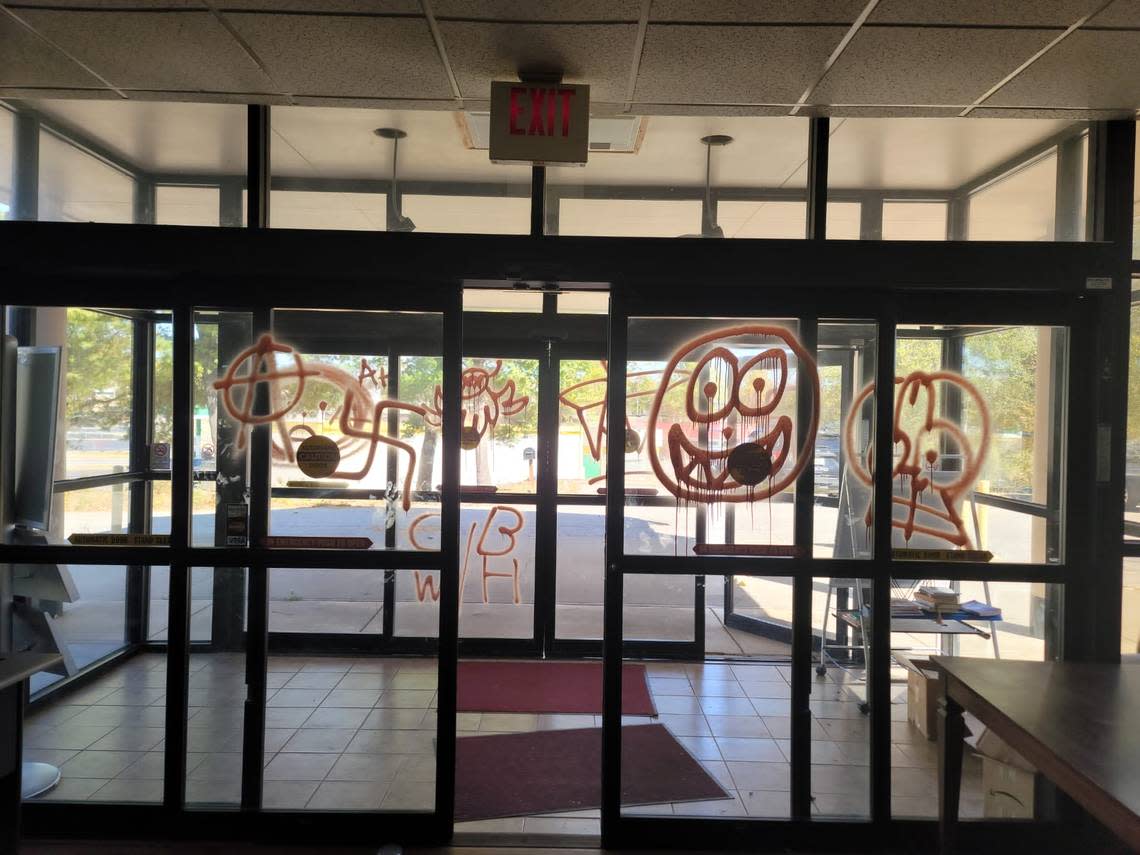Many faiths flourish in Kansas City. We must all come together to fight hatred | Opinion

When vandals ransacked and spray-painted swastikas and other hate symbols on the headquarters of the Dialogue Institute of Kansas City last fall, people of faith responded quickly and with heart.
First, they spread the word about what had happened to this Turkish-based Muslim group, which has promoted interfaith understanding here for years. Then they gathered at the United Methodist Church of the Resurrection in Leawood to hear speakers from various religious traditions pledge to stand with the institute and its shocked constituents.
That’s what Kansas City’s interfaith community does when slimy hate slides from under rocks to spread revolting messages of bigotry. And it’s been doing that for decades.
So on this Easter Sunday, I give thanks for this important work symbolized by the overlapping of major religious observances of the Abrahamic faiths (Judaism, Christianity and Islam): Lent (Feb. 22-April 6), Passover (April 5-April 13) and Ramadan (March 22-April 20).
Healthy, generative religion, it turns out, is still immensely important in Kansas City.
Yes, Christianity still has the most followers here, but America’s changing religious landscape has affected the metro, too, as American Christianity suffers diminishment and as the number of religiously unaffiliated people (called the “nones”) grows.
Religion’s fingerprints are all over Kansas City’s history. Sometimes in uplifting ways, sometimes far from it.
That history includes everything from fights over biblical support for slavery to the founding here in the 1890s of Unity, a spiritualist movement, to construction in Independence of the world headquarters of the Community of Christ (formerly the Reorganized Church of Jesus Christ of Latter Day Saints). As for theological seminaries and Bible colleges, we’ve got a handful of them.
One organization that has done as much as any other to foster religious education and dialogue is the Greater Kansas City Interfaith Council, created in 1989 by the Rev. Vern Barnet, long an advocate for religious literacy and cooperation.
Among other initiatives, the council sponsors the annual Table of Faiths dinner at which the area’s rich heritage of religious diversity is celebrated.
All of these efforts reveal that the need for reasonable religious voices hasn’t disappeared and may be more necessary than ever as our profound political divisions get reflected in our religions and sometimes result in people of faith dehumanizing others.
But as the Interfaith Council, the Dialogue Institute, the Good Faith Network of Johnson County and other risk-taking groups seek harmony, several agencies here are dedicated to working against the hatred displayed in racist, antisemitic and homophobic vandalism such as that found on Blue Valley High School’s football stadium press box in January.
Immediately after news of that hate crime broke, both the Jewish Community Relations Bureau/American Jewish Committee and SevenDays, an organization working to overcome hate through education and dialogue, issued not just condemnations of what happened but offers to help heal what was wounded.
The SevenDays statement included words from Emma Sandler, a Jewish high school senior at Blue Valley. She serves on the SevenDays Kindness Youth Leadership Team, which helps teenagers promote acts of kindness, especially on social media.
“I am both heartbroken and furious, but will move forward with kindness, not hate,” Sandler said then. (Disclosure: I serve on the boards of both SevenDays and the Midwest Center for Holocaust Education, an organization dedicated to teaching about the Holocaust to stop indifference, intolerance and genocide. The annual SevenDays “Kindness Walk” happens next Sunday.)
This stuff is important to me. It’s why I’ve written about it in more than 5,000 posts on my “Faith Matters” blog since 2004 and in more recent years in my monthly column for Flatland, KCPT-TV’s online magazine.
There I’ve described, among other things, the work of such Black pastors as the Rev. Darron Edwards to seek better police-community relations. Edwards, in fact, is representative of how important religion has been among people of color in Kansas City — and not just for Christians but for others, too, including Muslims, as represented by Imam Sulaiman Z. Salaam Jr. of the Al Haqq Islamic Center.
But whether it’s the Southern Christian Leadership Conference, the Crescent Peace Society or any other faith-based organization dedicated to making our area more welcoming, the bitter truth is that it’s not been enough. Religious, racial and other hatreds still stalk our sometimes-anarchistic streets. And each of us, whether religious adherents or not, must work to stop it. Today.
Bill Tammeus is a former Kansas City Star columnist who now writes for Flatland, KCPT-TV’s online magazine. His latest book is “Love, Loss and Endurance: A 9/11 Story of Resilience and Hope in an Age of Anxiety.” Email him at wtammeus@gmail.com

